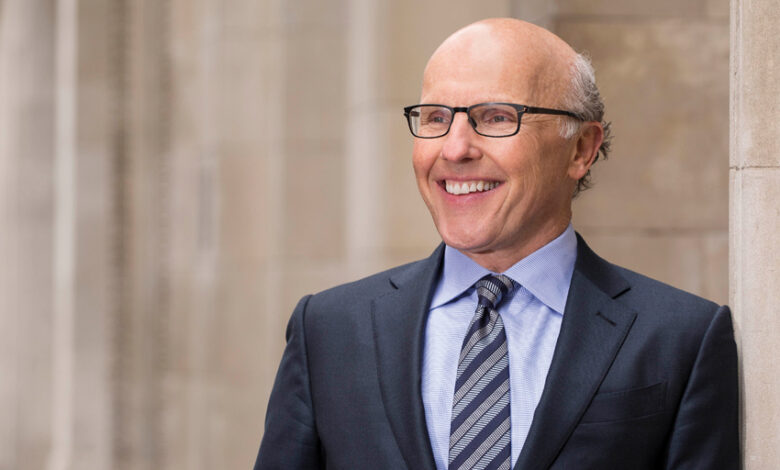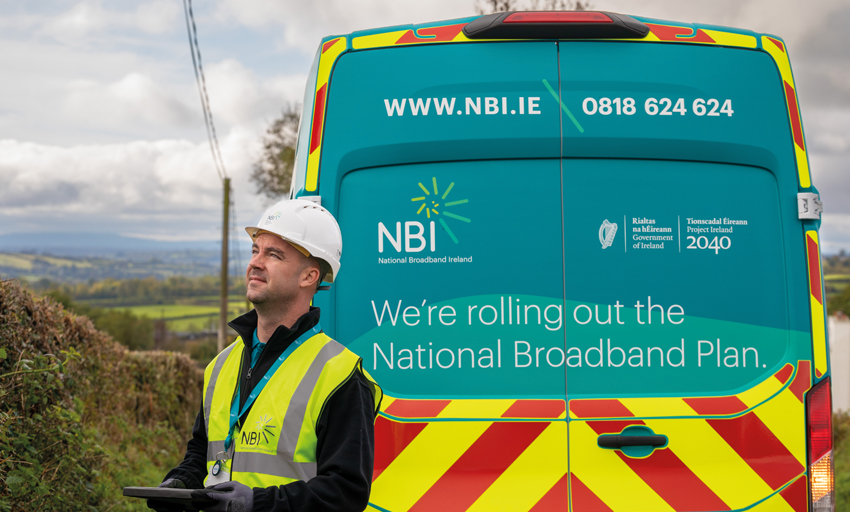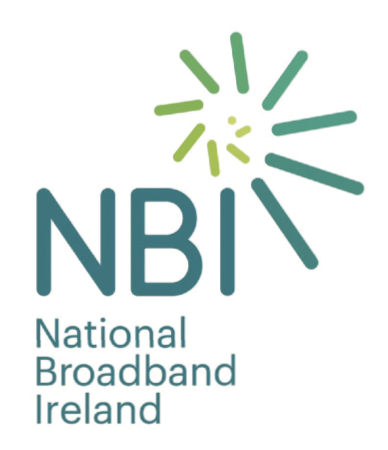Innovation is in Ireland’s DNA: Let us show the world the way

When animals in the wild graze their way across the landscape, you cannot help but notice they do not stay in one spot for an extended period. This is their way of eating enough vegetation to satisfy themselves, but not take every leaf off a tree or bush until it is dead, writes David McCourt, Founder and CEO of Granahan McCourt Capital and Chairman of National Broadband Ireland.
They take what they need and move on, leaving behind nutrient exchanges that trigger biological activity. In other words, most wild animals eat what they need, leaving the plant or bush stronger for the trim. That is the way politicians and businesses used to operate as well.
In most urban areas, the sense of community is gone, leaving the big pillars of stability, consistency, and a sense of what is considered civilised behaviour to the policymakers and enterprise, in other words: politicians and businesspeople.
Now the obvious problem here is that both politicians and businesses have become more short-sighted than ever over the last 50 years, each taking not only the tree or bush for themselves, but the entire forest, and they want it now. What is needed is a total rethink around business and policymakers and Ireland is in a position to lead this type of thinking.
Step back and look at why Ireland can lead this long overdue revolution and take a leadership position in key areas such as technology and innovation. Ireland is a small country that has played a big leadership role for over 100 years. I read the 1916
Proclamation recently, written during World War One when Ireland was fighting for independence. It mentions three times in the document that women will be equal partners in the future of Ireland. This was a full four years before America allowed women the right to vote.
Ireland was bold in its electrification of the country, and recently with its road network. Ireland was the first country in the world to institute a nationwide comprehensive smoke-free workplace law. Ireland was the first country to legalise same-sex marriage by popular vote. The free education scheme of the ‘60s led to what we have today, which is a country that, at last measure, had the highest share of population in Europe with university graduates. Despite European Union protests, Ireland developed a very business-friendly tax scheme to attract the largest companies in the world to set up shop, hire, train, and employ thousands of Irish people.
Recently, Ireland was among a tiny elite group that made it a human right to have high-speed broadband available to every man, woman, and child in the country through its National Broadband Plan. It is these brave long-term policies that come at significant, short-term cost, that have allowed Ireland to claim a leadership role as a small country.
This mentality is also what has taken Ireland from being a small farming country to a global player, today ranking number six in commercial service exports globally. This is no small feat.
Ireland has had one of the fastest growing GDPs in the European Union every year for the past two decades. All this success came the hard way, by policymakers making difficult decisions and sticking with them, supported by the business community.
As we look at how Ireland came through the pandemic stronger than many of its peers, we can lead in creating positive disruption on a global scale. To achieve this, Ireland’s commitment to the decentralisation of opportunity with ubiquitous access to connectivity and technology can take us to another level.
Decentralisation of opportunity
For way too long, rural areas around the globe have been left behind, and rural Ireland is no different. The best schools, the best hospitals, the best jobs, the best public transport, and the best infrastructure, all gravitate toward the urban areas.

Across almost all developed countries, what we see today is a digital divide whereby urban areas have an incredible advantage with access to connectivity and digital services, but many rural areas have been left underserved, creating all sorts of knock-on issues and problems.
This problem is not unique to Ireland or any one country. Urban areas around the world have been growing by three million people a week. That means every three weeks, we as a globe are creating another London, Hong Kong, or New York. That is unsustainable for our environment, our housing costs, congestion, carbon footprint, and quality of life.
This trend can only be turned around with the planned and well executed decentralisation of opportunity. We need to create jobs where people live and empower themselves through connectivity and technology to create new companies, grow existing companies, and attract employment remotely from global companies.
Globally, we need to be in a position where people in rural environments can see a bright future to start or grow a business, or global companies can feel confident to recruit, hire, and train a remote workforce that has the tools and technology to do the job.
That does not mean access to Netflix. It means access to remote healthcare, access to remote education, training, information, career progression, and all the future benefits that technology offers. In a new world in which sustainability is crucial, this has to be part of the answer.
Ireland can and should lead by example in the inevitable decentralisation of opportunity. At National Broadband Ireland, with the support of the Department of Environment, Climate and Communications, we are making strong progress in this regard by delivering the country’s transformational National Broadband Plan.
For more information on our progress, and to check if your home, farm, school, or business is included in the rollout, visit nbi.ie.
T: 0818 624 624
E: contactus@nbi.ie
W: www.nbi.ie






